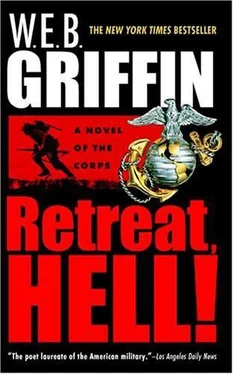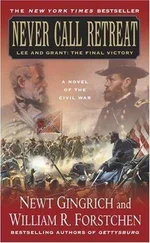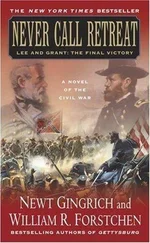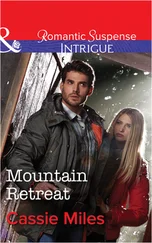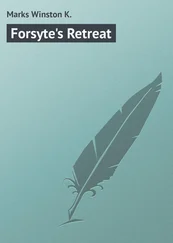Major Malcolm S. Pickering, USMCR, had flown such an airplane in the Pacific, becoming an ace in the process, and had been flying such an airplane when he was shot down.
Brigadier General Pickering vainly hoped that General of the Army MacArthur would not see the tears that came to his eyes.
"Has there been any further word, Fleming?" MacArthur asked gently.
Pickering waited until he was sure he had control of his voice before replying.
"There was a message last night from Major McCoy, sir. He seems to feel that Pick is all right, and that he missed making contact with him by just a matter of hours."
"I would suggest, my friend, that McCoy is just the man for that job."
"I agree, sir."
"My heart goes out to you, Fleming," MacArthur said.
"Thank you."
MacArthur decided to change the subject.
"I suppose you've read the dossier on Rhee?" he asked.
"Yes, sir. Amazing man, apparently."
"Who in his youth fell under the spell of a Viennese . . . lady of the evening . . . and married her."
"I saw that," Pickering said. "I wonder how often a prominent man has done something like that without it becoming a matter of official record?"
"I would hate to hazard a guess," MacArthur said.
There was a discreet knock at the door.
MacArthur frowned, then said, "Come."
Colonel Sidney Huff came into the compartment.
"General, we just had word that the helicopters have arrived safely at Kimpo."
"What helicopters would that be, Huff?"
"The large-capacity Sikorsky helicopters, sir. Two of them."
"Is there some reason, Huff," MacArthur asked, not pleasantly, "why you felt I had to know that right now?"
"General, I thought there might be a public relations value in photographs of you with these aircraft."
"I would think photographs of me turning his capital back to Rhee would overshadow any photograph of me standing by an airplane."
"Yes, sir, of course they would. But I really think it might be valuable in the future. It would take only five minutes or so. May I set it up, sir?"
MacArthur looked thoughtful, shrugged, and then nodded.
"Yes, Sid," he said. "You may."
"Thank you, sir," Huff said, and backed out of the compartment, closing the door after him.
"Fleming, do you have any idea how much I envy your anonymity?"
"Douglas, that's the price of being a living legend," Pickering said.
MacArthur considered that, and nodded.
"Getting back to where we were before Huff," MacArthur said. "Youthful indiscretions. You know the old Cavalry dine-in toast, don't you?"
"No, I'm afraid I don't."
" 'Here's to our wives and the women we love,' " MacArthur quoted, hoisting an imaginary glass. "Pause. Long pause. 'May they never meet.' "
Pickering chuckled.
"Somehow, Douglas, I don't think my Patricia or your Jean would be amused."
"Then we will just have to keep that between us, won't we?"
Chapter Four
[ONE]
The House
Seoul, Korea
O74O 29 September 195O
Major General Ralph Howe and Master Sergeant Charles A. Rogers walked into the garage behind the house looking considerably neater and cleaner than they had at breakfast. They were showered, shaved, and in starched and pressed U.S. Army fatigues.
Major Kenneth R. McCoy and Master Gunner Zimmerman were examining the hood of what now had become "McCoy's Russian jeep."
Zimmerman spotted Howe and Rogers, stood erect, and opened his mouth.
General Howe very quickly raised his hand, palm outward, to silence him. McCoy sensed something unusual and looked over his shoulder. General Howe turned his palm-outward hand toward him. He lowered it only when he was sure McCoy wasn't going to bellow an automatic "Attention on Deck!"
"So this is the famous Russian jeep?" Howe said.
"Yes, sir," McCoy said.
"What are you doing to it?"
McCoy answered by pointing. There was now a large white star on the hood, and on either side the stenciled-in-black legend usmc.
"I'm impressed," Howe said. "Where did you get the stencils?"
"I cut them," Zimmerman answered. "I cut one for you, too, Charley."
"Excuse me?"
"For chevrons," Zimmerman said, pointing at Rogers's bare sleeve. "You'll look like a Marine, but I thought you'd like that better than what the general said about you looking like the oldest private in the army."
"He has a point, Charley," General Howe said.
"Will the paint dry?" Rogers asked doubtfully. "We're going to have to get out to the airport."
"It'll dry," Zimmerman said. "I'm a Marine. You can trust me."
Rogers snorted but started to unbutton his fatigue jacket.
"Ken," Howe said, gently but as a reprimand, "I thought you understood I wanted to hear what the North Korean colonel had to say."
"Sir, they were supposed to tell me when you came downstairs."
"There was a little confusion in there," Howe replied. "The rest of your men showed up, hungry and dirty."
He took from his pocket a manila envelope, folded over and heavily sealed with Scotch tape, and handed it to McCoy. "Your sergeant said this was for you."
"Thank you, sir," McCoy said, and began to remove the tape as he went on: "Well, sir, Ernie and I talked to both the prisoner and the South Korean colonel. Which puts me in the same spot Bill Dunston's in. We think we're onto something, but we don't want to holler 'Fire' just yet, with nothing to back it up."
"Neither you nor Ernie could get anything out of this fellow?" Howe sounded both surprised and disappointed.
"All I can give you, sir," McCoy said carefully, "is what I think is one possible scenario. I have nothing to back it up but my gut feeling."
Howe made a let's have it gesture.
"I think this colonel is important. I'm pretty much convinced he's an intelligence officer. He had his own vehicles, for one thing, and he was obviously trying very hard to not get captured."
McCoy realized that he was not going to be able to remove the Scotch tape from the manila envelope with his fingernails. He muttered, "Shit," slipped his right hand up the sleeve of his utility jacket, and came out with a blue steel dagger, then continued without missing a syllable: "I think he's one of the NK officers who've been trained by the Chinese Communists, or the Russians, or both. . . ." McCoy dug the point into the Scotch tape, gave a little shove, and then almost effortlessly sliced through the layers of tape. "I know he speaks Cantonese, and I think he probably speaks—or at least understands—Russian." He wiped the blade of the dagger on his utility jacket, then replaced it in whatever held it to his left wrist. "If that's true—and that's a big 'if—"
General Pickering had told General Howe about the knife McCoy carried on his left wrist. It was a Fairbairn, designed by the legendary Captain Bruce Fairbairn of the pre-World War II British-officered Shanghai Police. Fairbairn had taken a liking to a cocky young corporal of the 4th Marines, whom he had met at high-stakes poker games, had run him through his police knife-fighting course, and then given him one of his carefully guarded knives. Howe had never seen it before, although Pickering had told him McCoy was never without it.
McCoy took two leather wallets from the now-sliced-open envelope, put them in his hip pocket, then tossed the third wallet the envelope had held to Zimmerman.
"—then it's possible, I think likely—" McCoy went on.
"What's that, your wallets?" Howe interrupted.
His curiosity had gotten the best of him.
"Yes, sir. And the CIA credentials. We left them with the 7th Division G-2 when we went south," McCoy said.
Howe thought: Which suggests, of course, that you thought there was a very good chance you would have been captured — or killed — yourselves. In either event, you didn't want them to find the CIA identification.
Читать дальше
